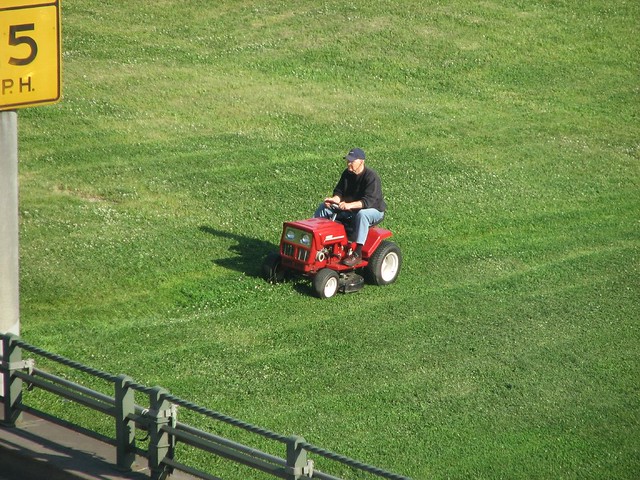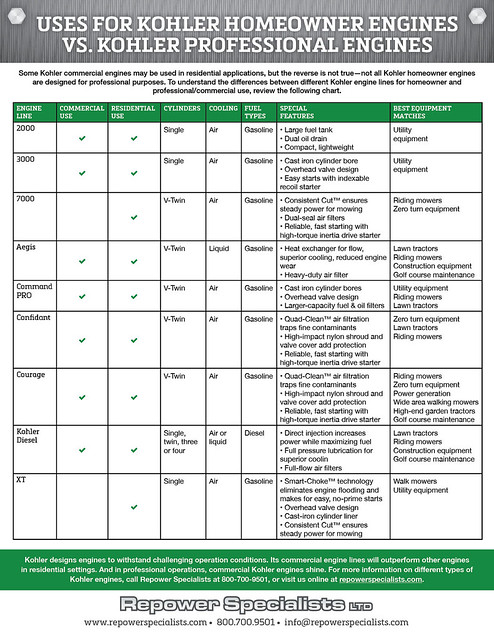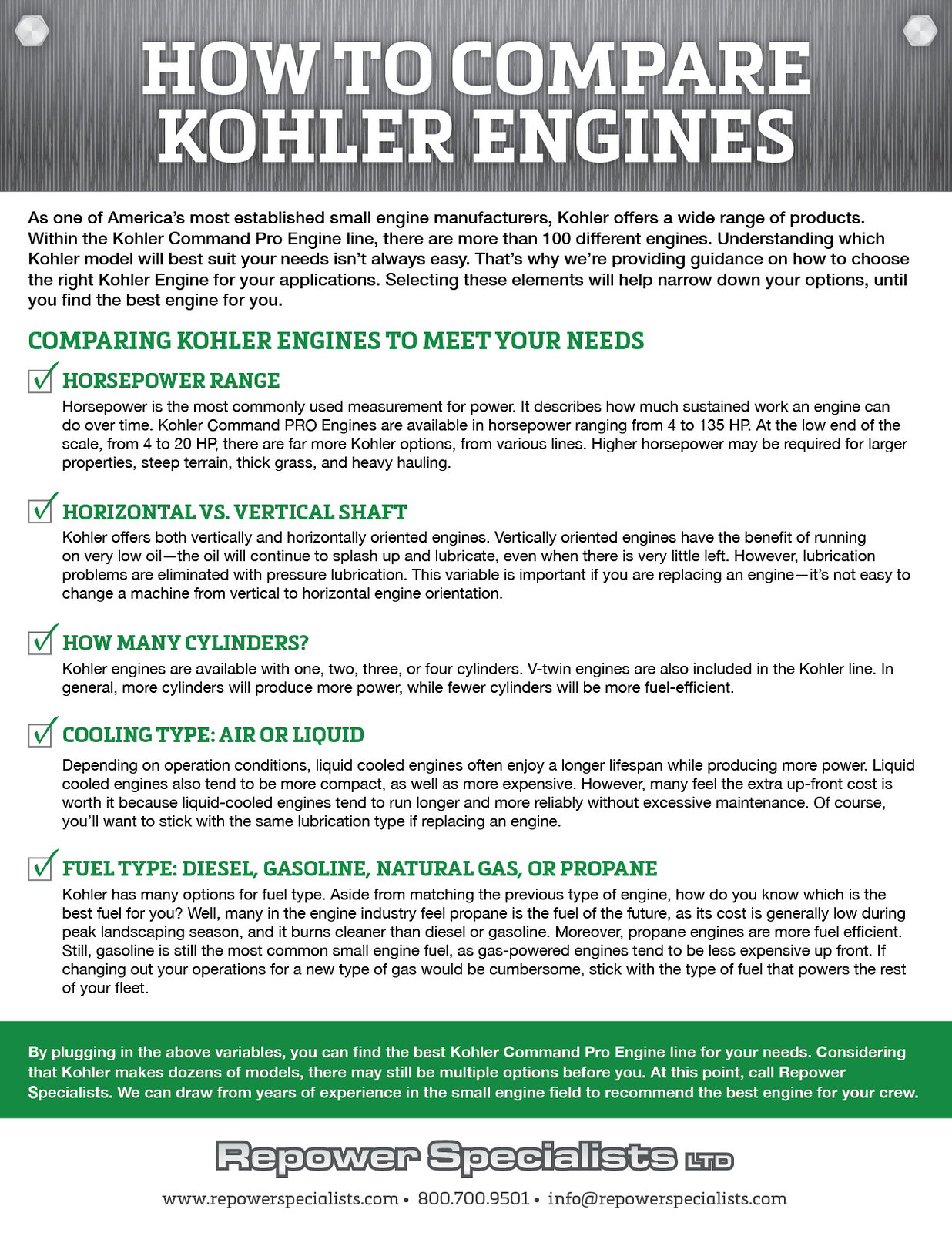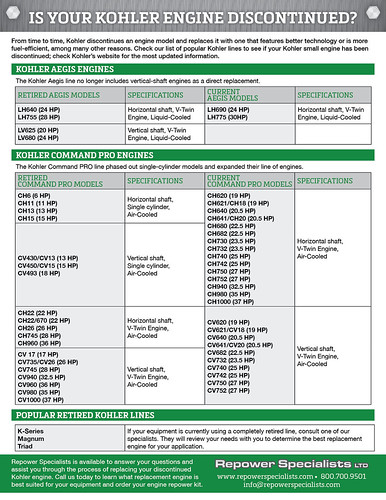Farming is vital to our economy, and small engines are vital to farms. Small engines are the power behind tractors, skid steers, and other agricultural equipment. When working in farming applications, small engines face certain challenges. Dusty environments, combined with long operation hours and variable terrain require engines to be powerful, reliable, and tough.
Kohler engines are exceptionally well suited for farm equipment. With decades of engineering expertise, the Kohler brand stands for quality and dependability. Here are a few ways that Kohler engine lines are built to thrive in agricultural settings.
Kohler Engines for Farm Equipment
1. Aegis Line
The Kohler Aegis line includes horizontal, V-twin, liquid cooled engines producing 24 or 30 HP. Aegis engines are liquid cooled for peak power and steady running temperatures. Maintenance is simplified with user-friendly features like dual oil drains, low-oil protection, and easy-access oil fills. A low-profile heat exchanger minimizes engine wear while providing exceptional cooling. Finally, a hardwearing air filter provides twice the filtration area of competition filters, protecting the engine in dusty agricultural settings.
Aegis Kohler engines are ideal for powering grain augers, conveyors, bale choppers, utility tractors, and other farming utility vehicles.
2. Command PRO Line
The Kohler Command PRO line includes V-twin, air-cooled, vertical and horizontal engines in power ranges from 19 to 37 HP. Built-in oil coolers lengthen maintenance intervals and ensure low operating temperatures regardless of power range. Overhead valve technology within Command PRO engines provides further cooling, while boosting fuel efficiency. Large capacity, in-line fuel filters protect against dust-ridden agricultural operation. Command PRO engines are tough enough for agricultural settings; they have multiple durability features, including cast iron cylinder liners, full-pressure lubrication, and dual-element air filters.
The Kohler Command PRO engine line is perfect for agricultural machinery, including two-wheel tractors, feeders, utility vehicles, and more.
3. Kohler Diesel Line
Diesel engines power over two thirds of all farm equipment. The Kohler Diesel line is exceptional for agricultural work. Full pressure lubrication with a full flow filter extends engine life in harsh operating conditions. Moreover, direct injection delivers more complete combustion, for maximum power and minimum fuel use. An aluminum crank case with re-borable cast iron cylinder liners curtails weight while lengthening engine lifespan. Finally, Kohler achieves lower vibrations in its diesel engines, through fewer moving parts, exceptional balance, and decreased cylinder volume. Kohler diesel engines are available with one, two, three, or four cylinders, air or liquid cooling, and horsepower ranging from 6.1 to 134. They are backed by three-year, full manufacturer warranties.
Kohler has designed their diesel engines to run cleanly. In October of 2011, the company announced that it had added fuel injection and cooling exhaust gas recirculation technologies to its small diesel engines. As a result, Kohler diesel engines now produce 10 times fewer carbon particulate emissions (commonly known as soot). This redesign ensured that Kohler diesel engines would meet new environmental regulations in the U.S. and around the world.
For specific advice on how to select an engine from these lines for specific farm equipment, get in touch. Here at Repower Specialists, we are proud of providing the best customer service in the replacement engine industry. We answer all inquiries within one business day, and our engine replacement kits come complete with everything needed for installation. We would be happy to advise you on the best engine for your farming needs.
[Photo from Lee Cannon via CC License 2.0]




